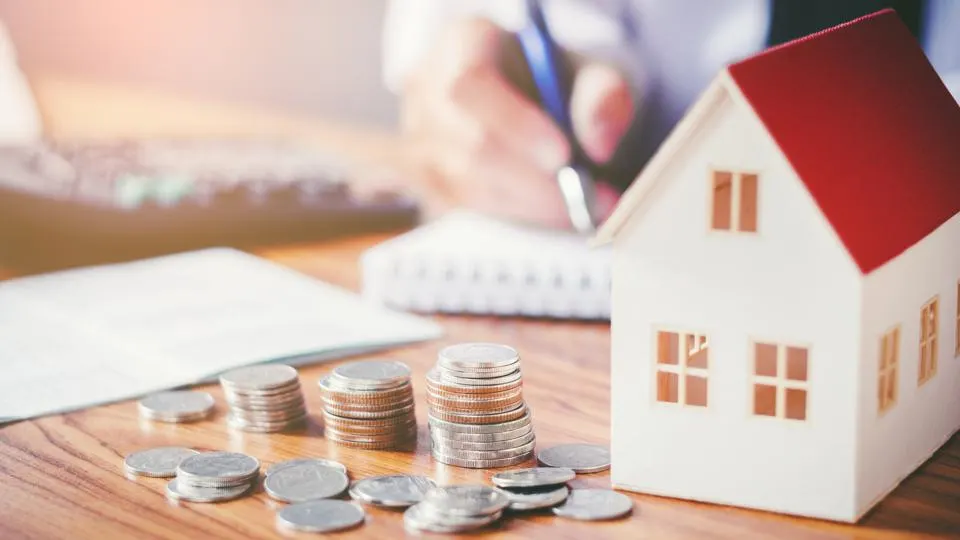Before you can make your final mortgage payment, you’ll need to ask your loan servicer for a payoff quote. You can often do this through the servicer’s website while logged into your home loan account. If not, you can call them. Have your loan number handy. You’ll find it on your mortgage statement.
The payoff quote will say exactly how much principal and interest you need to pay to own your home free and clear. It will also provide a date for when you need to pay it off. If you take longer, it’s not a big deal. You’ll just owe more interest.
Even after you pay off your mortgage, you’ll need to pay a lawyer or notary to assist you in removing your lender’s interest in your mortgage from the title through your province’s land registry office. In some province’s you will be able to do this process of discharging a mortgage on your own, but in most, you will absolutely need help from a lawyer and notary public, which comes at a cost of $400 to $2,500. Your lender will also charge a discharge fee around $400 and federally regulated lenders like banks are required to disclose their discharge fee as part of your mortgage contract.
If you decide to make extra payments on your mortgage as a means of paying it off, it’s important to tell your lender to direct those funds to the principal balance of the loan. And ask your lender ahead of time what fees you might incur when paying off the rest of your loan. If you still have a significant balance left on your mortgage and/or you’re not at the end of your mortgage term when you pay it off, you will incur a prepayment penalty that you will need to pay along with your mortgage balance, including interest. To avoid these fees, pay off your mortgage at the end of your mortgage term and make sure your final payment is only 20% above your usual monthly payment. This percentage usually falls within the perimeters of the extra annual payment you’re allowed to make beyond your monthly payment each year without incurring a penalty.
Your payoff statement should also note whether you need to make your final payment via wire transfer, bank draft (cashier’s cheque) or certified cheque, any of which will incur a small fee. If it doesn’t, ask whether a personal cheque, Interac e-Transfer or ACH transfer is acceptable.
What Documents Can You Expect?
The documents you receive may depend on your loan servicer. Here’s what you can expect, which documents are essential and which ones you can make do without.
- Canceled promissory note (“note”). A promissory note states that someone promises to pay something—in this case, a mortgage. You may or may not receive this document. It’s probably okay if you don’t, as long as you have other proof that you’ve paid off your loan.
- Deed of trust, property title or mortgage deed (“deed”). A deed is an official document showing that your lender has a right to your home if you stop paying the mortgage. This is another document your servicer may or may not send you when you pay off your home. It’s also possible your servicer will send it only to the government office of records where your deed was originally recorded.
- Certificate of satisfaction. Your local office of records will record a certificate of satisfaction once you or your loan servicer provides official documentation of your loan being paid off. Expect to pay $25 to $50 for this service. It may be one of the fees on your loan payoff statement. This is a document you definitely want for your records.
- Final mortgage statement. It’s free and easy to get your final mortgage statement showing that you don’t owe any principal, interest or fees. Hang on to this one, too, as proof of full repayment.
- Loan payoff letter. Your loan servicer might send you an official letter memorializing that you’re done paying off your loan. Again, it’s okay if they don’t, as long as you have other evidence. They usually don’t send you this unless you make a request.
If you don’t have proof within about 90 days that the certificate of satisfaction has been recorded, you may need to contact your lender and speak with the lien release department.
Steps to Pay It Off
Here’s a quick summary of what’s involved in making your final mortgage payment.
- Request a payoff quote from your mortgage lender.
- Make the final payment in the amount of the quote, following any special instructions such as paying via wire transfer. Your payoff quote will only be good through a certain date, so try not to miss the deadline.
- Receive documents verifying your loan repayment.
- Use a notary or lawyer in provinces that require them to help you discharge a mortgage by removing your lender’s interest in the property from your property title.
- Make sure your payoff is recorded with your local government and you get a copy of that record.
How It Affects Your Credit
Your credit score is unlikely to change much after paying off your mortgage. Your payment history and amount owed have already been factored into your credit score for years.
However, if you’re paying off a large lump sum (maybe you got an inheritance or life insurance settlement), the effect on your credit may be more noticeable. Your amounts owed, as shown on your credit report, will suddenly be much lower, and that metric is a big component of your credit score, accounting for about 30% of it. In that case, you might see a nice bump. But if you already have excellent credit, the effect may be negligible.
You also should check your credit report after 30 to 60 days to make sure it shows your mortgage was paid off. You can get free annual credit reports (called a consumer disclosure) from each credit bureau here and here.
Other Steps to Take After Paying Off Your Mortgage
Unfortunately, collecting mortgage paperwork isn’t the only task you’ll need to handle. Here’s what else you’ll need to do after paying off your mortgage.
- Cancel automatic payments. Make sure to stop any automatic monthly mortgage payments you may have set up. You don’t want to make an unnecessary payment and have to wait for a refund.
- Get your escrow refund. If you still had a mortgage escrow account when you paid off your loan, make sure you get a refund of any remaining balance. You should get it automatically within 20 days of paying off your loan. If not, contact your loan servicer.
- Contact your tax collector. If your local tax collector has been sending property tax statements to your mortgage servicer because of your escrow account, let them know they don’t need to do that anymore. All statements should come to you.
- Contact your insurance company. Again, if you had an escrow account, let your insurance company know that you’ll be paying the bills directly now and have them remove your loan servicer from the policy. You should also do the same for any other insurance coverage, like if you have a flood policy in addition to homeowners insurance.
- Set aside your own money for taxes and insurance. Paying off your mortgage doesn’t relieve you of your property tax obligations, and it’s a good idea to keep your homeowners insurance in place for financial protection. Remember, it not only protects your home’s structure; it also protects the contents and your personal liability. If you have coverage for perils like floods or earthquakes, you’ll probably want to keep those.
- Keep all important homeownership documents. In addition to the ones related to paying off your mortgage, you’ll want to keep your closing disclosure that shows how much you paid for the property. If you ever sell it, you’ll want records of your cost basis for income tax purposes. Keep records of your home improvement expenses for the same reason.
- Hang on to your title insurance. Keep your owner’s title insurance policy if you purchased one. Just because you’re mortgage free doesn’t mean there’s no possibility of an undiscovered title defect causing problems for you later.
How to Pay Off Your Mortgage Faster
There are several simple ways to pay off your mortgage early.
- Pay extra principal each year. Some people use an annual bonus or tax refund to put extra money toward their mortgage principal. Lenders with prepayment privileges allow you to pay up to 20% extra on your mortgage ach year without incurring a prepayment penalty.
- Refinance to a lower rate, shorter term or both. Either of these options will save you money on interest, which can help you pay down principal faster.
- Recast your mortgage. Mortgage recasting may be a good choice if you want to pay down several thousand dollars of principal and lower your monthly payment without refinancing.
Read the full article here









